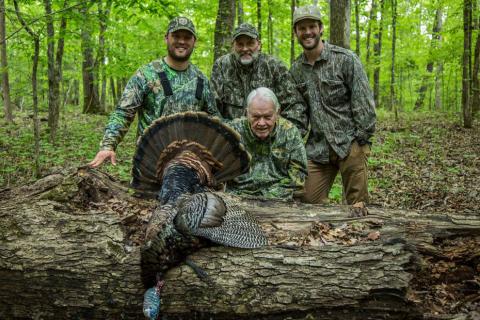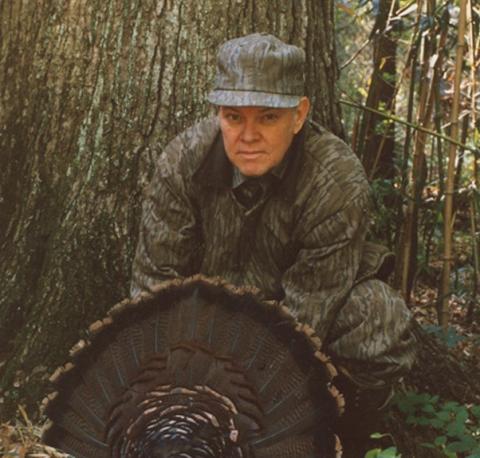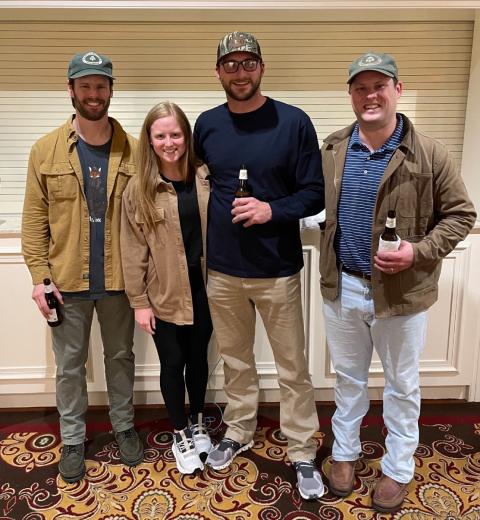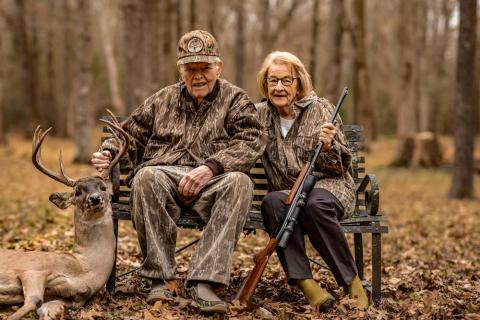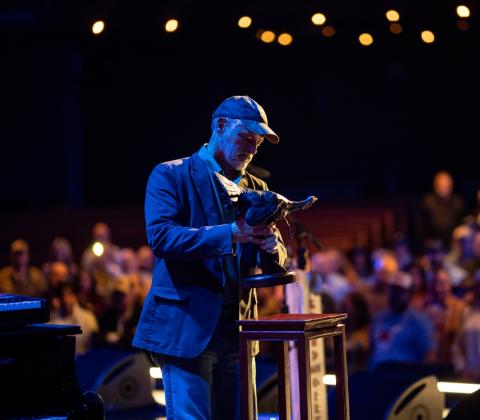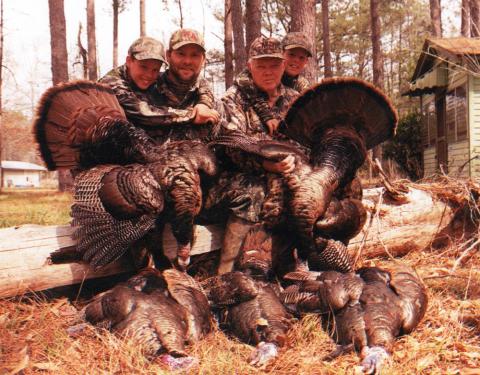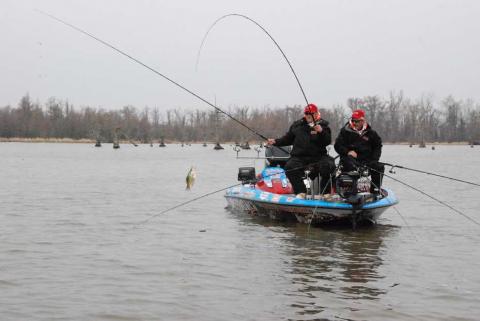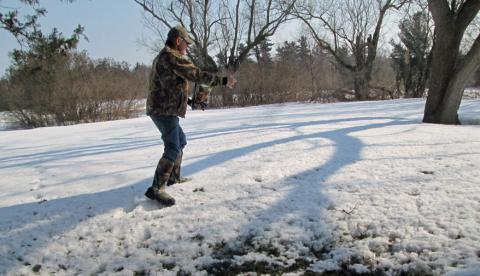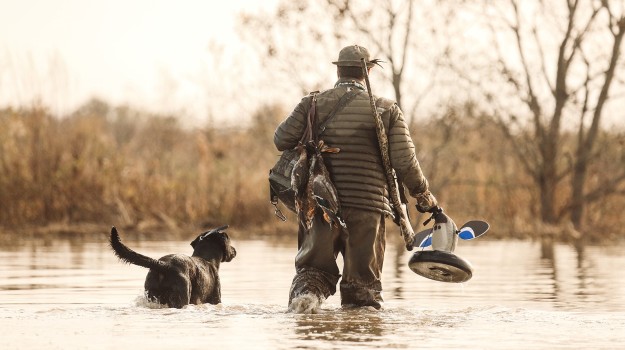
When I speak to different groups, I'm often asked, “Besides food, water, habitat and regulating your hunting pressure, what else are you doing to get those ducks to come in to your decoys at Honey Brake?” We keep a good mix of Avery greenhead decoys. The decoys mostly will be mallards, pintails, some teal, a few wigeons and maybe a few canvasbacks. Depending on the blinds we’re planning to hunt that day, we’ll usually have 70 to 500 decoys out in front of the blinds. Most of our really-big blinds will have 70 to 250 decoys each. When those big flights of ducks come over like we often see, we know we need a very-big decoy spread to get the ducks’ attention and pull them down into our blinds. Sometimes our hunters want to bring their dogs with them, and they’ll take their dogs out into the blind. The dog may be accustomed to seeing two or three dozen decoys. But with 500 decoys in front of a dog, that dog almost will go nuts.
When you're hunting as many blinds as we do every day and have blinds with 200 to 500 or more decoys, we can’t put out those big spreads every morning before daylight and pick them up every day after we hunt. To solve that problem, we have what we call run-and-gun sacks in our decoy shed. Then the guys can pick up a sack of decoys and go to a new place where they’ve seen more ducks arriving. For instance, our area had a lot of high water last season. We were parking at deer stands and wading out into the WRP to hunt ducks. With the run-and-gun sacks, our guys could pick up a sack or two of decoys and put those decoys in a place where they’d been seeing ducks that didn’t have a blind there. As far as calling goes, most of our guides are blowing Refuge calls - a duck call produced in Arkansas. Some of our guides have RNT calls. Some use Echo calls, and I always carry a Haydel’s Dirty Rice Mallard Call. We’ll also have drake mallard whistles, pintail whistles and teal whistles, because we call back to the ducks the same way they call to us. When we call, and the ducks fire back hard to us, we repeat that same call hard and loud back to the ducks.
I'm often asked, “If one of your hunters brings his duck call, can he also call?” Certainly, he can. We’re here to learn from our hunters too, and we also hope they can learn a little something from us.
To learn more about Honey Brake Lodge, go to www.honeybrake.com; call the lodge at 318-775-1007; or email justin@honeybrake.com.
Day 3: Why No Snow Means No Geese at Honey Brake Lodge
Tomorrow: What Happens at Honey Brake Lodge after Limiting Out on Ducks



















